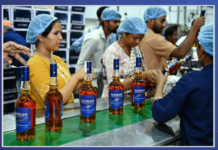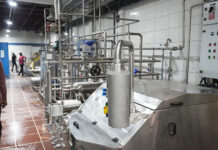SGS has awarded Organic Certification to the Whole Wheat Atta introduced by Amul, a cooperative brand managed by the Gujarat Cooperative Milk Marketing Federation (GCMMF) Limited. This certificate demonstrates compliance with the organic production requirements and supports the authenticity of the organic claim for the agricultural products marketed by GCMMF, under the brand name Amul. In addition to the certification awarded to GCMMF, SGS has also certified the Kaira District Milk Producers Union which is the processing plant of Amul.
Organic certification is a process certification involving a set of production standards for the growing, storage, processing, packaging, and shipping of organic products. The certification involves an independent assessment of the processes, premises as well as production methods to ensure regulatory compliance with the organic certification standards.
An Organic certification enhances the brand value and improves the marketability of organic products by responding to the strong consumer demand for genuine, organically produced foods. In addition to improving saleability and providing entry to new niches in the domestic markets, the certification also facilitates the export of unprocessed products to the EU and Switzerland. A fast and efficient program, this certification is an assurance of the organic integrity of products and the use of sustainable practices that safeguard the environment by protecting natural resources and biodiversity.
Organic certification standards include –
IndiFoodBev — authentic, impactful and influential
An English-language food and beverage processing and packaging industry B2B platform in print and web, IndiFoodBev is in its third year of publication. It is said that the Indian food and beverage industries represent approximately US$ 900 billion in revenues which implies more than 20% of the country’s GDP. Eliminating the wastage on the farmside can help to deliver more protein to a higher number of the population apart from generating sizable exports. The savings in soil, seeds, water, fertilizer, energy and ultimately food and nutrition could be the most immense contribution that country is poised to make to the moderation of climate change.
To improve your marketing and grow sales to the food and beverage processing and packaging industry, talk to us. Our research and consulting company IppStar [www.ippstar.org] can assess your potential and addressable markets in light of the competition. We can discuss marketing, communication, and sales strategies for market entry and growth.
Suppliers and service providers with a strategy and budget for targeted marketing can discuss using our hybrid print, web, video, and social media channels to create brand recognition linked to market relevance. Our technical writers are ready to meet you and your customers for content.
The second largest producer of fruit and vegetables in the world is continuously expanding processing capacities and delivery systems with appropriate innovative technologies. We cover product and consumer trends, nutrition, processing, research, equipment and packaging from farm to thali. Get our 2025 media kit and recalibrate your role in this dynamic market. Enhance your visibility and relevance to existing markets and turn potential customers into conversations. Ask for a sample copy of our bi-monthly in print or our weekly IndiFoodBev eZine each Wednesday.
For editorial info@ippgroup.in — for advertisement ads1@ippgroup.in and for subscriptions subscription@ippgroup.in
Naresh Khanna – 10 February 2025
Subscribe Now











